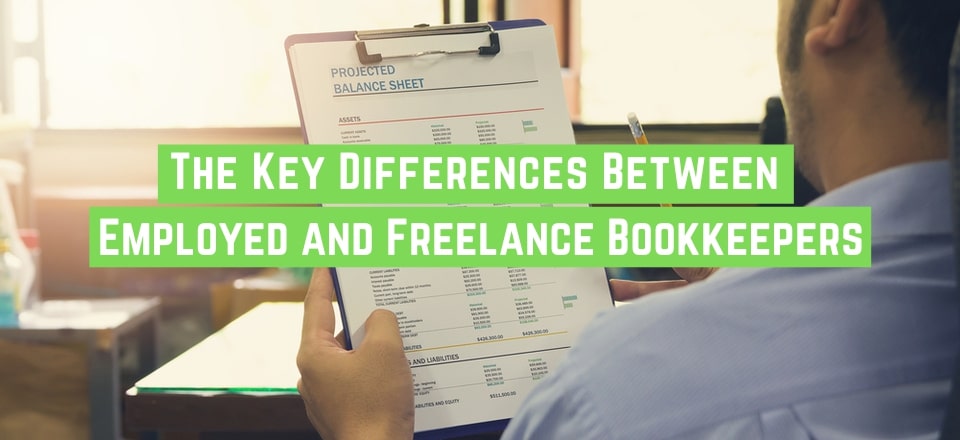Let’s cut straight to it. If you’re running a business in Australia right now, finding decent bookkeeping help is harder than it’s ever been. We’re looking at over 9,000 unfilled accounting positions nationwide, and that number isn’t getting better anytime soon.
At Virtual Done Well, we work with businesses every day who are stuck between hiring someone full-time (expensive and risky) or going with a freelancer (cheaper but sometimes unreliable). There’s actually a third option – virtual accounting assistants – but I’ll get to that in a bit.
First, let’s talk about what you’re really looking at when you compare these options.
How Freelance Bookkeepers Actually Work
Here’s the thing about freelance bookkeepers: they’re running their own business, which means they call the shots on pretty much everything.
When you hire a freelancer, you’re paying them to get a job done, not to sit at a desk from 9 to 5. They set their own rates – currently averaging around $79 per hour across Australia, though in Sydney or Melbourne you’re looking at $65-$120 an hour. Regional areas might be cheaper at $50-$90, but good luck finding someone available.
The big selling point? You don’t deal with any of the usual employment headaches. No super to calculate (though watch out – the Fair Work changes from August 2024 mean you need to be careful about who’s really a contractor). No sick leave, no annual leave, no workers comp. They handle their own tax, their own insurance, everything.
But here’s what they don’t always tell you upfront: that freelancer probably has other clients. Maybe 5, maybe 10. You’re not their priority unless you’re paying them to be. And if they get sick or go on holiday? That’s your problem to solve.
Most freelancers work remotely these days – 36% of Australians work from home now, compared to basically nobody before 2020. This is great if you want access to talent outside your area, but it also means you have zero control over their work environment.
Some freelancers are brilliant. They’ll outsource bits they can’t handle, manage multiple clients like a pro, and deliver everything on time. Others… not so much. The risk is all on you to figure out which type you’re hiring.
The Reality of Hiring an Employee Bookkeeper
Employing someone directly is a completely different game. You get control – they work your hours, in your office (or home if you allow it), using your systems. They’re yours exclusively, at least during work hours.
But let’s talk real numbers here. That bookkeeper you’re thinking of hiring for $65,000-$75,000? Add another 45-75% on top for the actual cost to your business.
Here’s the breakdown nobody likes to mention:
- Super at 12% from July 2025 (currently 11.5%)
- Four weeks annual leave
- Sick leave
- Workers comp insurance
- Office space, computer, software licenses
- Your time managing them
Suddenly that $65,000 salary is costing you $95,000-$115,000 a year. And that’s if everything goes smoothly.
The employment contract gives you control over everything – when they work, where they work, how they work. But it also means you’re responsible for everything. Tax withholding, super payments, keeping track of leave balances, dealing with Fair Work if something goes wrong.
If your bookkeeper calls in sick during tax time? Too bad. You’re still paying them, and the work still needs doing.
Let’s Compare the Real Costs
67% of Australian SMEs are already outsourcing or planning to outsource their bookkeeping. They’re not doing this because they love working with external providers – they’re doing it because the maths makes sense.
| What You’re Really Paying | Freelance | Employee |
|---|---|---|
| Base cost | $50-$125/hour as needed | $65k-$75k salary regardless of workload |
| Hidden costs | Maybe higher rates for urgent work | Add 45-75% for benefits and overhead |
| When they’re sick | Not your problem | Still paying, work doesn’t get done |
| Scaling up | Find another freelancer | Hire another person (3-6 month process) |
| Scaling down | Stop using them | Redundancy payments, Fair Work issues |
| Quality control | Hope they deliver | Direct oversight (if you have time) |
If you need less than 25 hours of bookkeeping a week, freelance almost always wins. More than 30 hours? Maybe look at employment. But there’s that awkward middle ground where neither option really works perfectly.
What Changed in 2024 (And Why It Matters)
The government’s been busy. The Fair Work changes that kicked in August 26, 2024 basically mean you can’t just call someone a contractor because they have an ABN anymore.
They’re looking at the “real substance” of the relationship. If someone works like an employee – same hours, can’t delegate the work, mainly working for you – they might legally be an employee even if you’re both calling it contracting.
Get this wrong and you could be on the hook for back-payment of super, leave entitlements, the lot. The threshold for opting out is $183,100 from July 2025. Most bookkeepers don’t make that.
Then there’s the skills shortage. Professional Year Program enrolments dropped 95% between 2018 and 2024. We went from 7,122 new accountants in the pipeline to just 340. The average bookkeeper is 48 years old. Do the maths on what happens in the next decade.
Why Virtual Assistants Make More Sense
Here’s where Virtual Done Well comes in. We’re not freelancers, and we’re not your employees. We’re something better.
Our virtual accounting assistants work from proper offices with actual managers and backup systems. Internet goes down? We have redundancy. Someone’s sick? We have cover. You need to scale up for tax time? We have a team ready.
The virtual assistant market is growing at 26% annually for good reason. Businesses figured out they can get professional service without the risks of freelancers or the costs of employees.
40% of accounting firms now use outsourcing, up from 18% five years ago. They’re not doing this because they’re lazy. They’re doing it because it works.
The cost is similar to freelancers – you pay for what you need. But unlike freelancers, we’re a proper business with systems, processes, and accountability. No juggling multiple random contractors. No wondering if your bookkeeper’s cat is sitting on their keyboard while they’re supposed to be doing your BAS.
What Actually Works
After years in this industry, here’s what we’ve learned:
- Small businesses (under $2M turnover): Usually need 10-20 hours of bookkeeping monthly. Hiring someone full-time is overkill. A good virtual assistant or freelancer makes sense.
- Growing businesses ($2M-$10M): This is where it gets tricky. You need maybe 25-35 hours a week. Not quite enough for full-time, too much for casual freelancing. This is exactly where virtual assistant services shine.
- Larger operations ($10M+): Probably need in-house capability, but even they’re using outsourcing for overflow and specialist work.
The old model of hiring a bookkeeper and keeping them for 20 years is dead. With over 80% of firms unable to fill positions, you need flexibility.
Making the Choice
Look, there’s no perfect answer here. But there are smart answers based on your situation.
If you’re absolutely certain you need someone full-time for the next several years, and you can afford the real cost (not just the salary), then hire an employee. Just know that you’re looking at $95,000-$115,000 minimum for someone decent.
If you need occasional help and you’re good at managing contractors, freelancers can work. Just have a backup plan for when they’re unavailable.
But if you want professional bookkeeping without the drama – consistent service, predictable costs, ability to scale – then virtual assistants through a proper service provider make the most sense.
At Virtual Done Well, we’ve built our whole business around solving these exact problems. Our bookkeepers aren’t juggling ten clients from their kitchen table. They’re working from professional facilities with proper support and systems.
Want to know more? Get in touch and let’s talk about what you actually need, not what traditional employment models say you should have.



Recent Comments